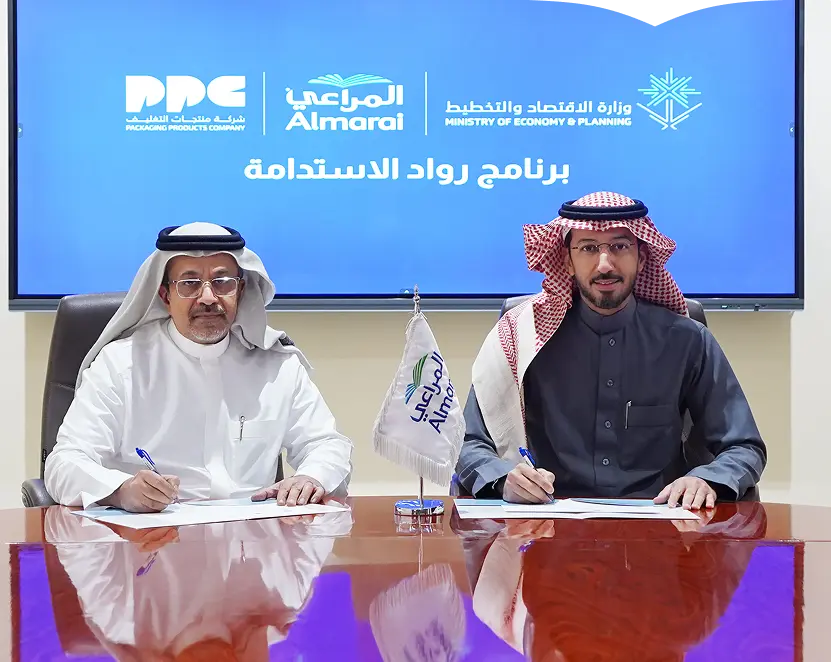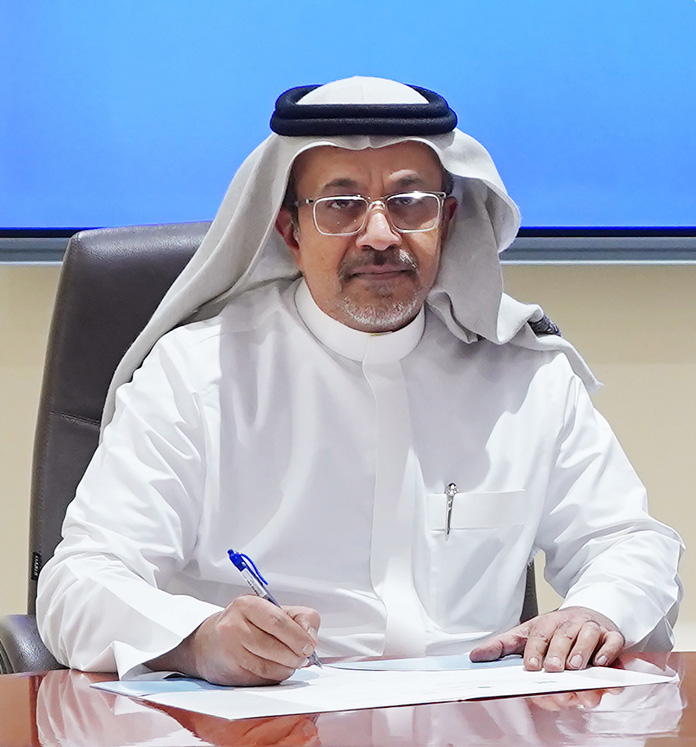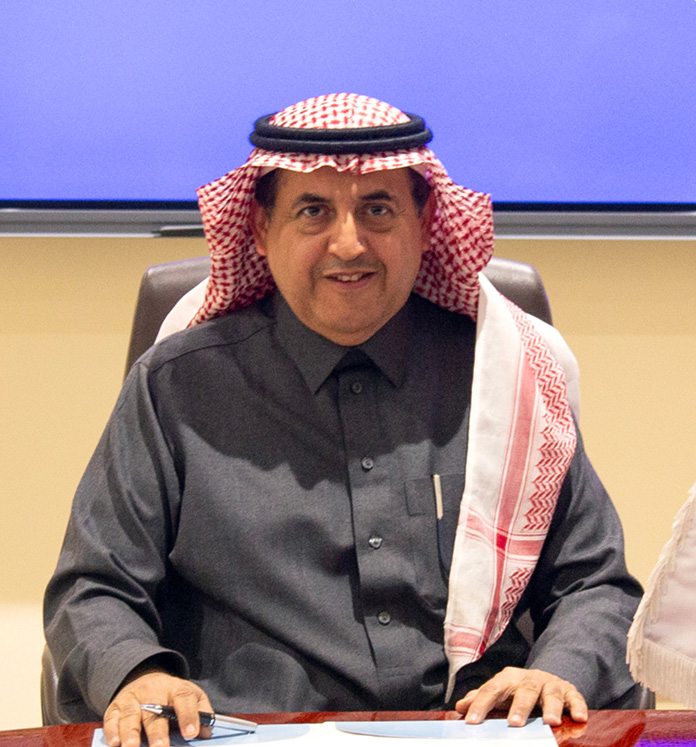At Almarai, our commitment to leading the food and beverage industry is deeply connected to our dedication to sustainable practices. We believe that our company's ongoing success relies on integrating environmental stewardship, social responsibility, and economic viability into the core of our business strategy. With this in mind, we have put in place strong governance systems and procedures that ensure our business actions are responsible and transparent, in line with the principles of Good Corporate Governance.
We have developed our governance system in accordance with the International Principles of Corporate Governance and local regulatory requirements, particularly those of the Capital Market Authority (CMA), the Tadawul Stock Exchange, and Almarai's bylaws. Appointed by the shareholders, our Board of Directors oversees our Corporate Governance and guides our strategic direction towards achieving our business objectives. The Board is also supported by our Executive Management team for policy implementation and for managing business compliance within the organizational framework. To enhance transparency and build stakeholder trust, we also publish an Annual Report that details the Company's governance processes. For more specific information on Almarai's corporate governance, please refer to the 2024 Annual Report.
Almarai’s Board of Directors is the Group’s highest-level governing body, responsible for determining strategic direction, goals and objectives, as well as monitoring their execution. The Board adheres to the corporate governance requirements applicable to public listed companies registered on the Saudi Stock Exchange, and in accordance with our company’s Corporate Governance Rules. As of 31 December 2024, the board comprised nine highly skilled members Non-Executive and Independent members (six members were non-executive and three were independent directors). Pursuant to the corporate governance rules, each director serves a specific tenure, after which a director may be re-elected for a successive term(s). We have also established internal check-and-balance mechanism to assess the performance of the Board and its Committees, including a formal review process where the collective performance of the Board and of individual members are evaluated. For more details about the roles, responsibilities and members of the Board of Directors, please refer to the 2024 Annual Report and Almarai’s website: www.almarai.com
To support the Board in fulfilling its responsibilities, Almarai has established several committees, including the Audit Committee, the Risk Management Committee, the Nomination and Remuneration Committee, and the Investment Committee. In addition, the Company has freedom to establish specialized committees as necessary, tailored to its specific circumstances, to enhance its ability to effectively fulfil its duties and responsibilities.
The Committee is responsible for developing and overseeing the Company's investment strategy and making recommendations to the Board. In addition, it monitors the performance of existing investments to ensure alignment with business objectives and compliance with regulations.
The committee is tasked with monitoring the integrity of the Company's financial statements and internal control systems and overseeing the performance of external auditors. It provides recommendations to the Board regarding the appointment and remuneration of auditors.
The Committee develops and oversees the Company's risk management strategy and policies, ensuring their effective implementation. It monitors the effectiveness of risk management systems and regularly updates the Board regarding Company's risk exposure levels, and control measures to retain the risk within acceptable levels.
Develops policies for the nomination of Board members and senior executives, establishes remuneration frameworks linked to performance, and conducts annual reviews of the Board's composition and effectiveness to maintain strong governance.
Decisions regarding the management of Sustainability issues throughout the supply chain are delegated to Almarai’s Board of Directors, the highest authoritative body within the organization. The Board approves the Company’s sustainability strategy and oversees its enactment to ensure its alignment with local, national, regional, and global regulative directives. At the corporate level, a committee comprising of CEO and Executive Vice President of Quality & Support Services and Head of Sustainability are responsible for ensuring the successful execution of our sustainability goals and targets. The meetings of this committee occur on a bimonthly basis. Moreover, our Head of Sustainability collaborates with various business units to ensure that there is organization-wide understanding and support for the Sustainability Strategy Framework and its different initiatives. The Head of Sustainability oversees the execution of our sustainability strategy and reports performance to the Executive Leadership Team Committee. He also advises business lines and functions on the effectiveness of their implementation strategies in meeting our long-term targets.

Our Enterprise Risk Management (ERM) approach is proactive and dynamic, allowing us to adapt to the ever-changing landscape of global affairs and unforeseen events. By employing a comprehensive risk assessment framework, we are able to prioritize risks based on potential impact and the likelihood of its occurrence. This enables us to allocate resources more effectively and ensure that management efforts are focused on the most significant risks.
Our ERM Policy aligns with both national and international industry best practices, while referencing the ISO 31000:2018 standard and COSO framework principles. Almarai’s Board of Directors and Senior Management use these principles while setting the strategy and making decisions. Management then plans, organizes and directs the performance of sufficient actions to provide reasonable assurance that the Company’s objectives can be achieved while ensuring that associated risks are kept within an acceptable risk level.
Almarai’s Risk Management Process – ISO 31000:2018
At Almarai, our Enterprise Risk Management (ERM) process starts by establishing the context and defining risk criteria, which lays the groundwork for thorough event identification. Each identified event is then assessed, analyzed, and evaluated based on the combination of the event's potential consequences and the likelihood of its occurrence, after which it is prioritized. We then implement appropriate responses to mitigate risks, considering the associated costs. The risk responses are then categorized into categories. After consultation and verification by risk owners, these responses are incorporated into the ERM system.
It is important to note that communication and consultation are key priorities in our risk management process. We prioritize keeping our stakeholders well-informed about the factors that drive our risks, including potential effects on our employees, the community, business partners, and the environment. This transparency is crucial for the efficient and sustainable management of our operations. Additionally, we have established control activities to ensure adherence to standards, procedures, and recommendations. Each business area conducts a quarterly self-assessment and reports the findings to the Internal Control Department. This department then analyzes the results and provides summaries to the relevant stakeholders. Based on these insights, stakeholders develop and implement appropriate action plans, all under the guidance and oversight of the Internal Control Department.
Moving forward, we are focused on integrating Environmental, Social, and Governance (ESG) factors, as well as climate-related risks that could impact our financial performance, particularly our cash flows, into our Enterprise Risk Management (ERM) framework. This integration would enable us to identify, assess, and manage these risks more effectively, ensuring long-term sustainability and value creation for all our stakeholders. We will also concentrate on enhancing the skills and capabilities of our sustainability committee and workforce, equipping them with the necessary resources to effectively respond to and manage these risks.
Aligned with industry-recognized best practices, Almarai employs a three lines of defense model to ensure accountability throughout the company for the governance, management, and reporting of risks, as well as the oversight of the control environment. This governance model is overseen by the Board of Directors, who provide strategic guidance and ensure that potential threats are identified, monitored, and managed effectively.
In a strategic effort to boost corporate sustainability, the Ministry of Economy and Planning introduced the Sustainability Champions program at the World Economic Forum Special Meeting in Riyadh. This initiative is set to transform the Kingdom's sustainability landscape by encouraging partnerships among leading companies in various sectors. The program designates top companies as “Champions” to mentor others in enhancing their sustainability practices. This includes offering guidance and resources, in addition to the necessary tools and technologies, to help enhance sustainability performance and reporting.

Almarai has emerged as a key participant in the Sustainability Champions Program, where we are mentoring three companies (Obeikan, MEFSCO, and PPC) with multiple targeted initiatives. By engaging with these companies, Almarai is not only enhancing its own operations but also contributing to the broader sustainability goals of Saudi Arabia.
Each supplier underwent a detailed materiality assessment to identify gaps in their sustainability practices.
Supporting the mentees to design an actionable roadmap to achieve measurable environmental improvements over the three years.
Creating their first sustainability reports, aligned with global reporting standards like GRI.
Organizing workshops to educate suppliers on ESG principles, global sustainability standards, emission management, and best practices for resource efficiency.

As a proud participant in the Sustainability Champions Program, PPC has greatly benefited from Almarai’s mentorship in sustainability and innovation. Through their guidance in this program, we have optimized our manufacturing processes to exceed sustainability benchmarks. We have concentrated on enhancing recyclability and reducing our carbon footprint. We look forward to continuing this journey together, aiming to set new standards for sustainability.
Ibrahim Hasan Alghamdi
CEO, Packaging Products Company

With Almarai’s mentorship, we are committed to assessing our sustainability baseline, developing action plans to improve our sustainability performance, executing these plans, and transparently communicating our progress through comprehensive sustainability reports. This collaboration has been instrumental in guiding us on our sustainability journey.
Omran Al-Obeikan
CEO, Obeikan Industrial Company
Almarai has successfully concluded its participation in the 16 th session of the Conference of the Parties of the United Nations Convention to Combat Desertification (UNCCD COP16), held in Riyadh from 2 nd to 13 th of December 2024. The event convened dignitaries, policymakers, international organizations, companies, NGOs, and experts to advance efforts in sustainable land management, land restoration, and enhancing resilience to drought.
Held under the theme “Our Land, Our Future,” the conference focused on fostering multilateral action to address pressing environmental challenges, including drought resilience, land tenure, and the impacts of sand and dust storms.
During the conference, over 70 schools and universities were engaged, serving more than 500 students daily. Additionally, more than 10 agreements were discussed or signed and the event attracted approximately 1,500 daily visitors.
Our participation in this global event aligned with Saudi Arabia’s presidency of the UNCCD, reflecting our role as a leader in sustainability and environmental stewardship.
We showcased our efforts to:

